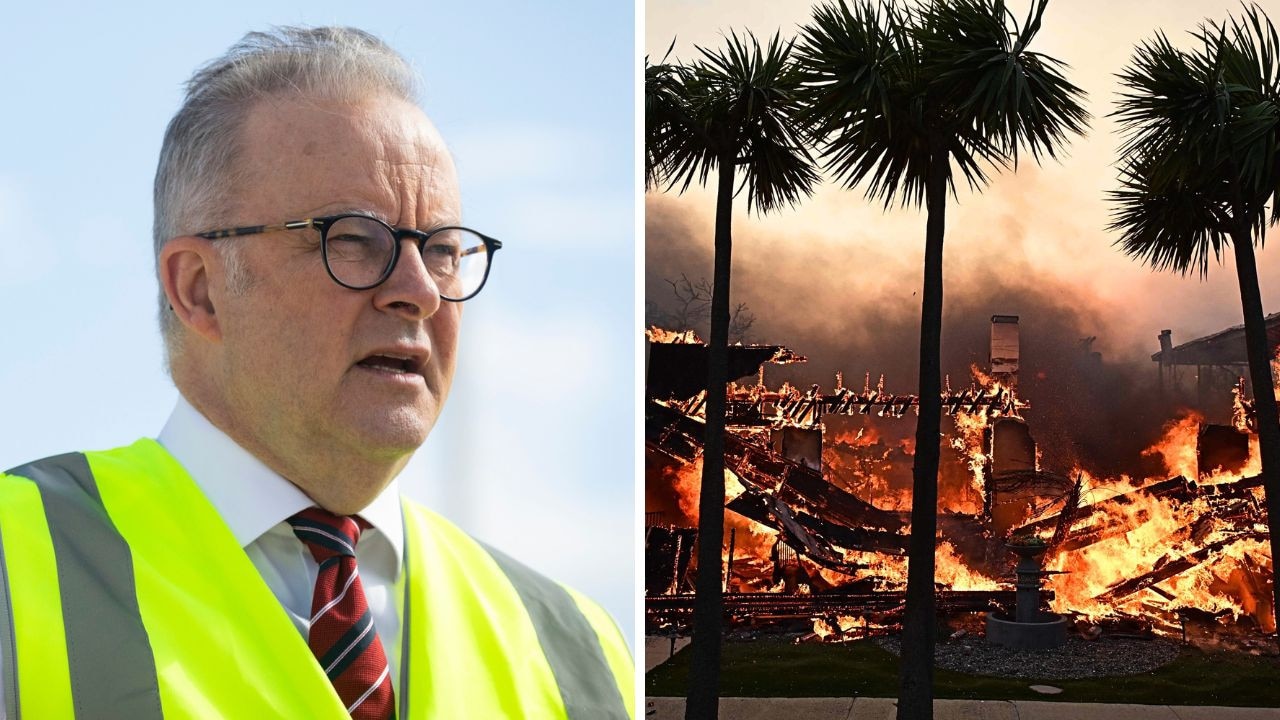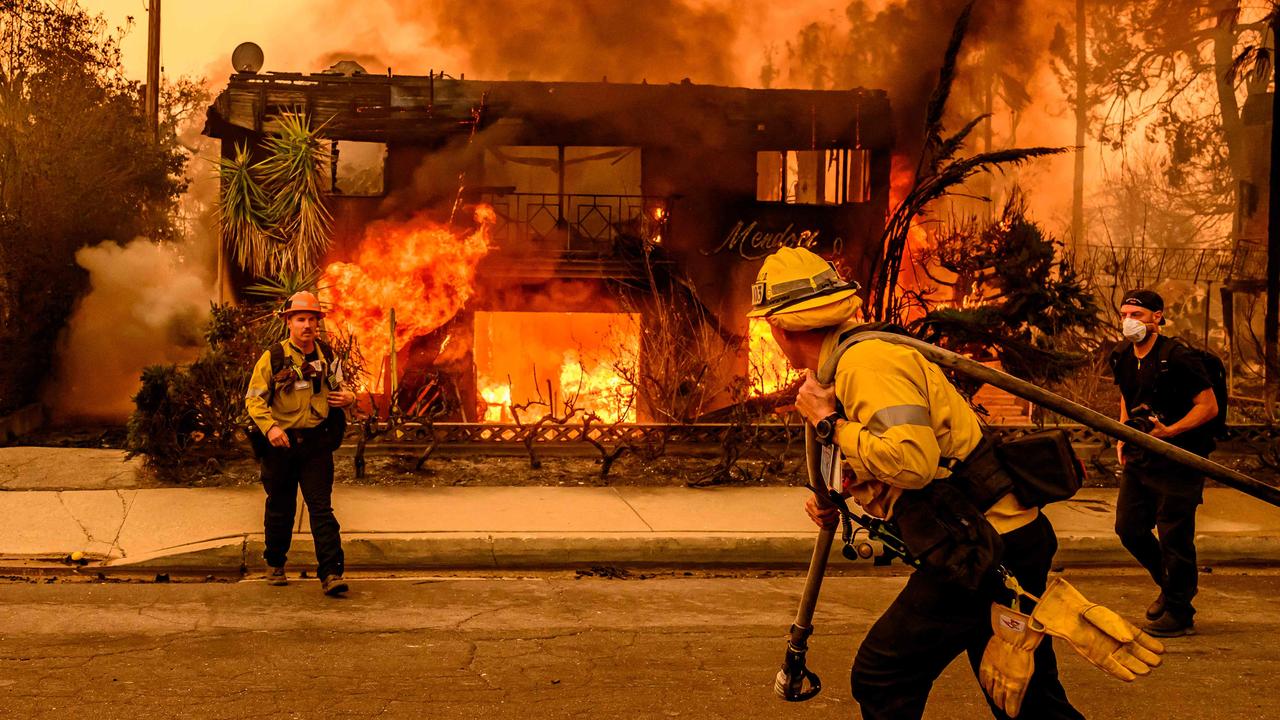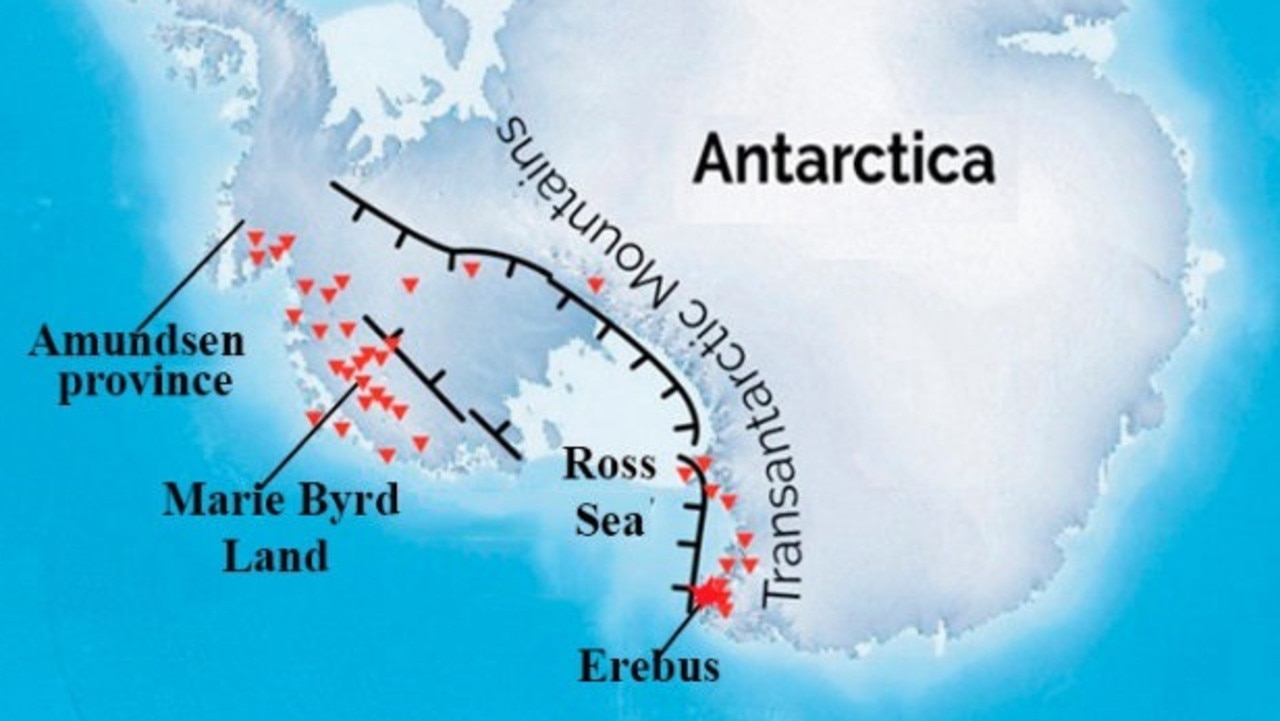Fossil fuels must go by 2100 to limit climate change, UN says
FAILURE to combat climate change could lock the world on a trajectory with “irreversible” impacts on people and the environment, a UN report says.
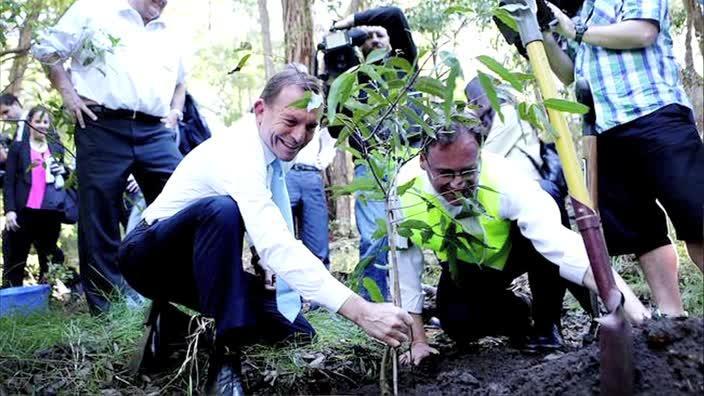
CLIMATE change is happening, it’s almost entirely man’s fault and limiting its impacts may require reducing greenhouse gas emissions to zero this century, according to the UN’s panel on climate science.
The fourth and final volume of the Intergovernmental Panel on Climate Change’s giant climate assessment didn’t offer any surprises, nor was it expected to since it combined the findings of three earlier reports released in the past 13 months.
CLIMATE CHANGE: Storm hits Sydney after scorcher DIRECT ACTION PLAN: What is Tony Abbott’s climate change policy?
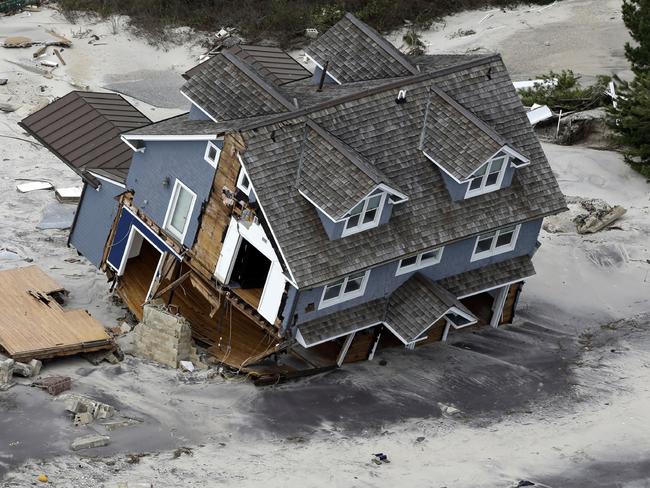
But it underlined the scope of the climate challenge in stark terms. Emissions, mainly from the burning of fossil fuels, may need to drop to zero by the end of this century for the world to have a decent chance of keeping the temperature rise below a level that many consider dangerous.
Failure to do so, which could require deployment of technologies that suck greenhouse gases out of the atmosphere, could lock the world on a trajectory with “irreversible” impacts on people and the environment, the report said.
Some impacts are already being observed, including rising sea levels, a warmer and more acidic ocean, melting glaciers and Arctic sea ice and more frequent and intense heatwaves.
“Science has spoken. There is no ambiguity in their message. Leaders must act. Time is not on our side,” UN Secretary-General Ban Ki-moon said at the report’s launch in Copenhagen.
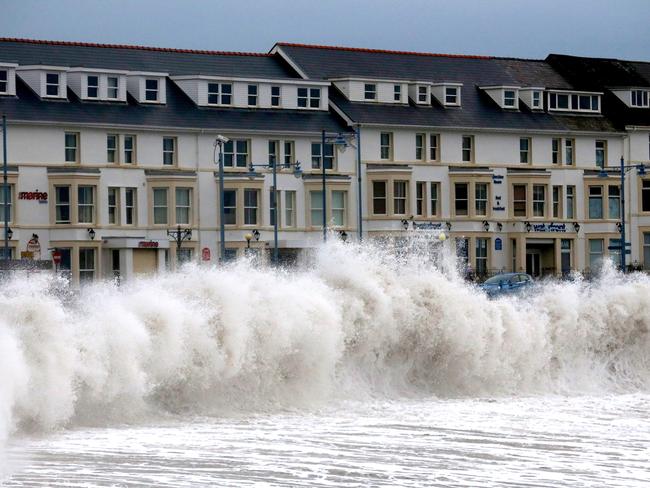
Australia responds:
Environment Minister Greg Hunt says the report “reaffirms” the government’s approach to climate change, just days after securing its Direct Action plan in the Senate.
When asked whether he thought Australia was doing enough to tackle the problem, Mr Hunt said all nations can do more.
“But we have to do this step by step,” he told ABC Radio.
“Instead of big talk and just an electricity tax I would rather have outcomes and achieve what we said we’d do.”
The Minister refused to be drawn “either way” on the IPPCC’s recommendation for 80% renewables by 2050.
He said the “two big areas” to focus on are cleaning up power stations and protecting the world’s great rainforests.
Australia needs to choose between coal and death, according to Greens Leader Christine Milne, who jumped on the IPCC’s findings.
“Do you want death or do you want coal?
“That’s what we’re talking about here,” she told reporters in Hobart.
“Tony Abbott wants coal. Coal is not good for humanity just as Tony Abbott is not good for the planet when we’re talking about global warming.”
The party’s leader compared the continual use of coal to tobacco.
“Coal is not good to humanity … and coal has known it for a long time. Coal has known that its days are numbered, just as tobacco did.
“The world cannot have coal and renewable energy. Coal has to go.”
Senator Milne said the planet would become “unlivable” with an extra four degrees of warming.
She called for a greater investment in renewable energy.
“We are a big country. We have great solar. We have great wind. We have tidal power.”
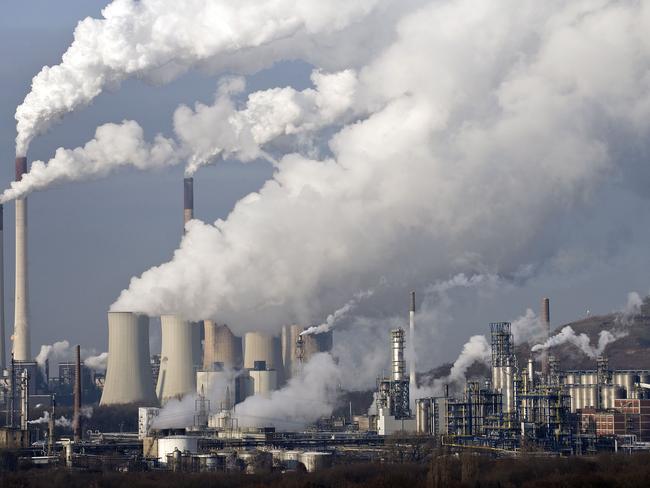
Amid its grim projections, the report also offered hope. The tools needed to set the world on a low-emissions path are there; it just has to break its addiction to the oil, coal and gas that power the global energy system while polluting the atmosphere with heat-trapping CO2, the chief greenhouse gas.
“We have the means to limit climate change,” IPCC chairman Rajendra Pachauri said. “All we need is the will to change, which we trust will be motivated by knowledge and an understanding of the science of climate change.”
The IPCC was set up in 1988 to assess global warming and its impacts. The report released on Sunday caps its latest assessment, a mega-review of 30,000 climate change studies that establishes with 95 per cent certainty that nearly all warming seen since the 1950s is man-made.
Today only a small minority of scientists challenge the mainstream conclusion that climate change is linked to human activity.
Sleep-deprived delegates approved the final documents on Saturday afternoon after a week-long line-by-line review in Copenhagen that underscored that the IPCC process is not just about science. The reports must be approved both by scientists and governments, which means political issues from UN climate negotiations, which are nearing a 2015 deadline for a global agreement, inevitably affect the outcome.
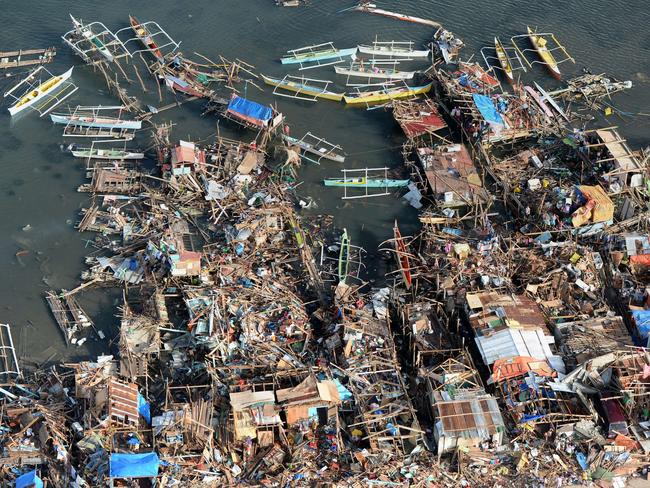
The rift between developed and developing countries in the UN talks opened up in Copenhagen over a box of text that discussed what levels of warming could be considered dangerous. After a protracted battle, the delegates couldn’t agree on the wording, and the box was dropped from a key summary for policymakers to the disappointment of some scientists.
“If the governments are going to expect the IPCC to do their job,” said Princeton professor Michael Oppenheimer, a lead author of the IPCC’s second report, they shouldn’t “get caught up in fights that have nothing to do with the IPCC.”
The omission of the box meant the word “dangerous” disappeared from the summary altogether. It appeared only twice in a longer underlying report compared to seven times in a draft produced before the Copenhagen session.
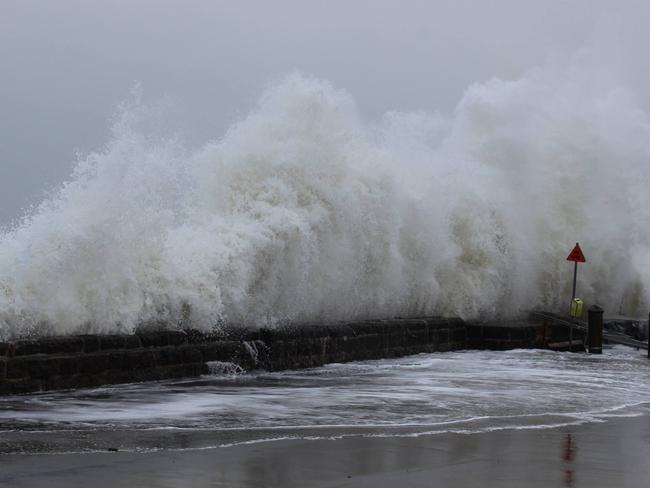
But the less loaded word “risk” was mentioned 65 times in the final 40-page summary.
“Rising rates and magnitudes of warming and other changes in the climate system, accompanied by ocean acidification, increase the risk of severe, pervasive, and in some cases irreversible detrimental impacts,” the report said.
World governments in 2009 set a goal of keeping the temperature rise below 2 degrees C compared to before the industrial revolution. Temperatures have gone up about 0.8 C since the 19th century.
Time is running out to limit global warming to 2C:
Meanwhile, emissions have risen so fast in recent years that the world has already used up two-thirds of its carbon budget, the maximum amount of CO2 that can be emitted to have a likely chance of avoiding 2 degrees of warming, the IPCC report said.
“This report makes it clear that if you are serious about the 2-degree goal ... there is nowhere to hide,” said Alden Meyer of the Union of Concerned Scientists, an advocacy group. “You can’t wait several decades to address this issue.”
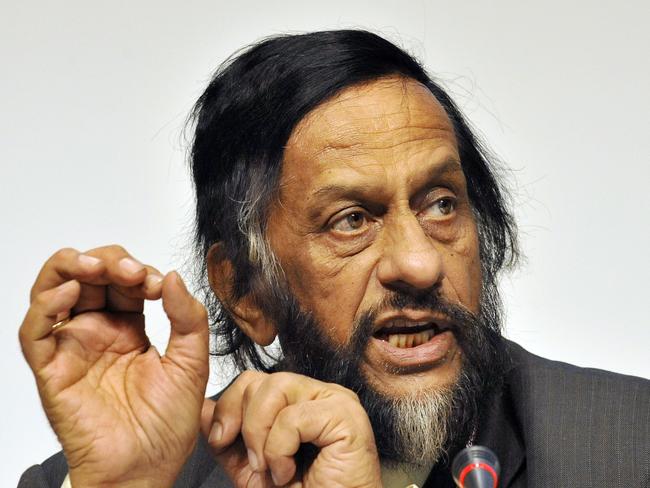
US Secretary of State John Kerry called the report “another canary in the coal mine.”
“The bottom line is that our planet is warming due to human actions, the damage is already visible, and the challenge requires ambitious, decisive and immediate action,” Mr Kerry said in a statement. “Those who choose to ignore or dispute the science so clearly laid out in this report do so at great risk for all of us and for our kids and grandkids.”
Pointing to the solution, the IPCC said the costs associated with mitigation action such as shifting the energy system to solar and wind power and other renewable sources and improving energy efficiency would reduce economic growth only by 0.06 per cent annually.
And Dr Pachauri said that cost should be measured against the implications of doing nothing, putting “all species that live on this planet” at peril.
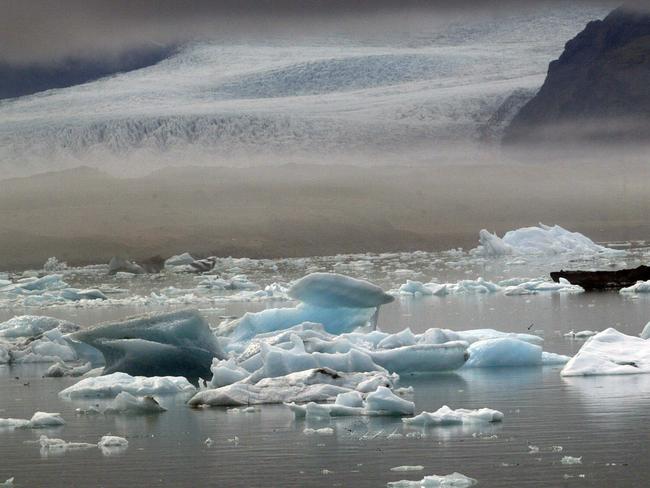
The report is meant as a scientific road map for the UN climate negotiations, which continue next month in Lima, Peru. That’s the last major conference before a summit in Paris next year, where a global agreement on climate action is supposed to be adopted.
“Lima should be the place where we put the pieces together so we can move toward success” in Paris, said Peruvian Environment Minister Manuel Pulgar-Vidal.
The biggest hurdle is deciding who should do what, with rich countries calling on China and other major developing countries to take on ambitious targets, and developing countries saying the rich have a historical responsibility to lead the fight against warming and to help poorer nations cope with its impacts. The IPCC carefully avoided taking sides in that discussion, saying the risks of climate change “are generally greater for disadvantaged people and communities in countries at all levels of development.”

